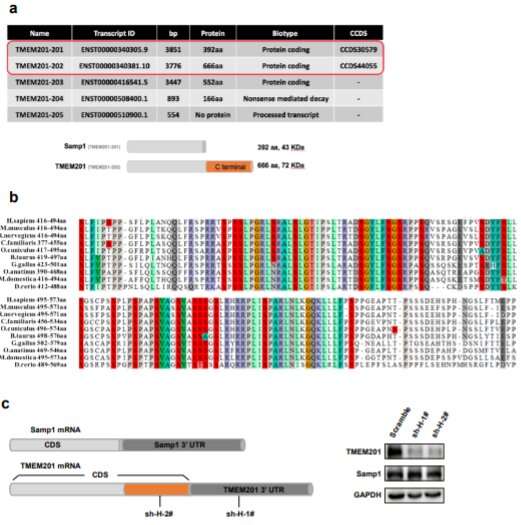
The nuclear envelope (NE) is composed of the outer nuclear membrane (ONM) and the inner nuclear membrane (INM), which are separated by the perinuclear space and joined at nuclear pore complexes. INM proteins play crucial roles in cell cycle regulation, DNA repair, aging, and cell migration of tumor formation and progression. However, the specific INM proteins and INM protein-based mechanisms contributing to cancer aggressiveness remain to be investigated.
In a study published in Oncogene, a team of researchers led by Li Jia from Shanghai Institute of Materia Medica of the Chinese Academy of Sciences discovered a novel INM protein transmembrane protein 201 (TMEM201) promoting breast cancer metastasis.
In addition to classical functions of providing physical strength and stability to protect nucleus, INM proteins link to cancer pathogenesis.
In this study, the researchers found that TMEM201, a type III INM protein, was highly expressed and predicted poor breast cancer survival in invasive breast cancer. They then studied the increased expression of TMEM201 which promoted TGFβ-mediated epithelial-to-mesenchymal transition (EMT) facilitating the migration, invasion, and survival properties of BC cells. Study showed that TMEM201 physically interacted with SMAD2/3 and was required for SMAD2/3 phosphorylation.
These results revealed the role of specific INM protein in metastasis of aggressive BC, and suggested a potential therapeutic strategy for the poor-prognosis disease.
This study not only reveals that INM protein TMEM201 acts as a positive regulator of TGFβ signaling by interacting with SMAD2/3 in breast cancer metastasis, but also broaden the understanding of INM protein involvement in cancer cell biology and oncology as a whole.
Liu Jia, Chinese Academy of Sciences

